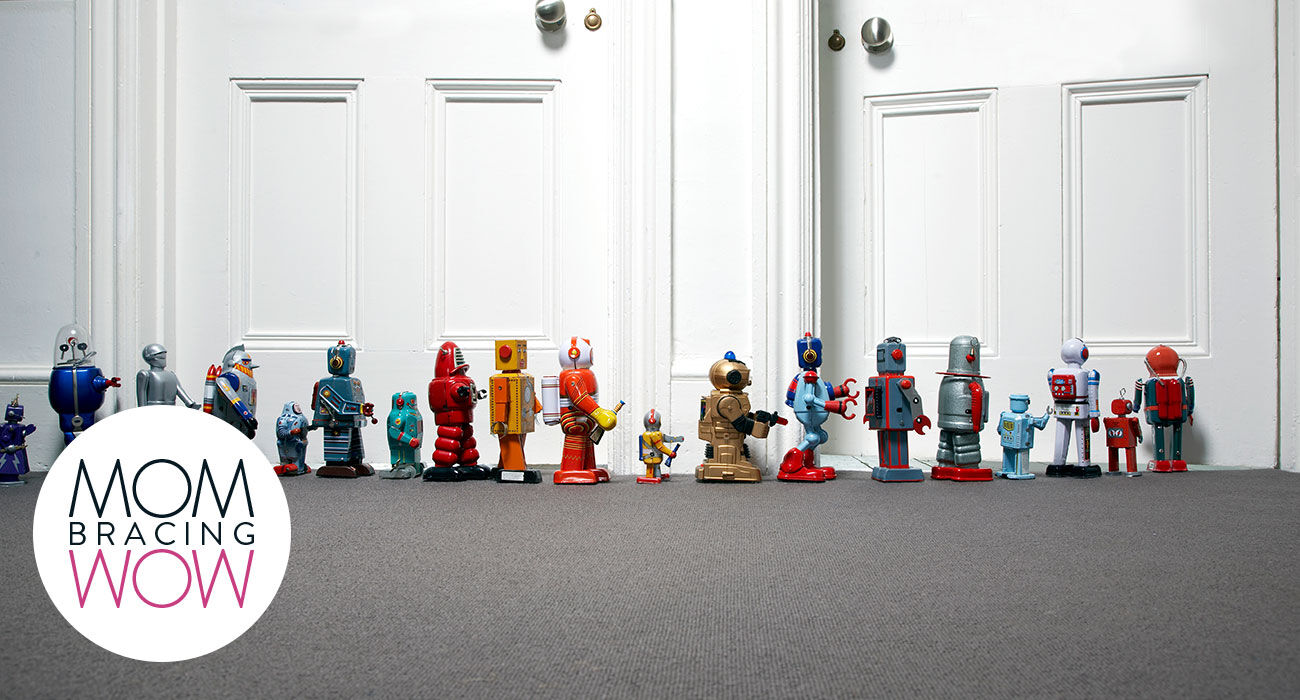why a ‘village’ of co-educators is not so crazy after all
Image: Getty Images
It takes a village to raise a child, in other words: a child can best grow up in a close-knit community of people. By the way, creating your own ‘village’ around you is not only good for your child, but certainly also for you.
‘Omwana takulila nju emoi’, ‘Omwana taba womoi’, ‘Omwana ni wa bhone’, it almost seems like a mantra, but they are three African proverbs that say as much as: it takes a village to raise a child. In large parts of Africa, there is a traditional idea that raising a child is not only the responsibility of the parents, but of the entire village or tribe.
Although we no longer live in a tribal context in the Netherlands, many parents discovered during the lockdowns – and the associated closure of schools – that a strong network of family, neighbors and friends is invaluable. Now that everything is ‘normal’ again, have we fled back to the safe bubble of our own family?
Community feeling
Developmental psychologist and Marielle Balledux hopes not. She is co-author of You grow up togethera report by the Netherlands Youth Institute.
“The Dutch culture, in contrast to, for example, some African or Southern European cultures, is fairly individualistic. That goes in phases. During the reconstruction after the Second World War, we also had the feeling: we have to do it together. But as soon as the prosperity in a country is high, you see that the sense of community generally becomes a lot less important. In addition, nowadays we move much more often from our hometown, so that family and friends live further away. Families are also smaller, so there is naturally a smaller network.”
“We want to show that we can really raise the child alone, but we don’t have to”
But since corona and with everything that is happening in society now – many have to live on less, there is more poverty; some children even go to school without breakfast – Marielle notices that the sense of community is higher on the agenda again. Education is an important part of that. “As parents, we often want to do it all ourselves. Others shouldn’t think that we can’t do it alone. But the message is correct: you don’t have to do it alone. Raising children together is much nicer and incredibly valuable for both parents and children.”
Read also – Bouchra helps vulnerable mothers with a migration background for a thousand days >
Support pillars
That is exactly what Tabitha (44), mother of Teun (7) and Willem (3), experienced when she lost her husband a year and a half ago and suddenly found herself on her own.
“When Frank and I came to live in our neighbourhood, I already noticed that we ended up in a close-knit group of neighbours. I was more focused on my family and didn’t feel the need to squeeze in. But since Frank passed away, my neighbors have become real pillars of support. They bring food regularly, keep an extra eye on things when the children play outside and ask the boys to come along when they walk the dog.
I had to get used to it at first, but it feels very familiar now. My family and friends don’t live next door and I find it easier to ask for help from people who live close by. For example, I can ask a neighbor for help if a new bed needs to be put together; otherwise I also try to give something back.
I notice that my sons need role models other than just their mother. And I think that’s very healthy. For example, my brother is much more involved in their lives now than he used to be. He plays Stratego with them and teaches them the Rubik’s cube. He has more patience than I to explain games to them; Teun and Willem enjoy all the attention they get from him.
I don’t just dump my children everywhere, but I do gain more and more confidence in the network we are now building around us. Knowing that I am not alone gives me peace. Soon the boys will be staying with neighbors who also have two sons for the first time. I find it quite exciting, but I also look forward to the freedom that it will hopefully bring me.”
Network
Grandpa, grandma, uncle, aunt, the teacher, a football coach, the ballet teacher, a YouTube influencer, the neighbor, the mother of a boyfriend; anyone in a child’s environment can be a co-carer who is close to or slightly further away from the family. For parents, this provides relief in the upbringing, according to research by the Netherlands Youth Institute.
Marielle: “Isn’t my daughter eating too little? Help, my son is not sleeping, what can I do? When can I let my children cycle to school alone? As a mother you often think that you are the only one with these kinds of questions. When you have a network of people you can talk to about these things, you not only learn to look at things from different perspectives, but you can also cope better with motherhood. You become more relaxed, experience less stress and that makes you a nicer and more relaxed mother.”
Co-educators
For children, too, a ‘village’ of co-educators has nothing but advantages. Various studies show that children who can rely on adults other than their own parents are more resilient and resilient. And a New Zealand study over a 45-year period shows that children with a strong social network are healthier and happier people later in life.
Marielle: “It is enriching for a child to have several support figures in life. To have a community they feel connected to. To experience that life does not only consist of you and your family, but that there are other forms, people with a different attitude to life and with other norms and values. That is how children grow up to be resilient adults.”

Special role
Melissa (38) has a long-term relationship, is consciously childless and is Billy’s (8) aunt. “When I became an aunt, I didn’t think at all about what role I was going to play in my nephew’s life. Billy and I immediately had a deep bond. When he was four he stayed with me for the first time and then the questions came. “Melissa, don’t you want a baby in your belly?” was one of those. No, I told him, I like being your aunt better and will always be there for you. That was a satisfying answer for him.



